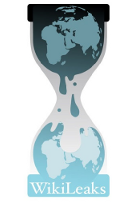Cablegate on African broadband: Apr-Jun 2009 (Tunisia, Kenya, South Africa)
Quite a few WikiLeaks cables deal with the behind-the-scenes of African broadband affairs. The various dialogues regarding the telecoms situation in Africa are surprisingly detailed and often proceed for well over a dozen paragraphs. Essentially, the United States routinely monitored the economic prospects in each country and provided updates to Washington.
Using CablegateSearch.net we have listed the “juiciest” cables (if African broadband can be described as such), below. Many of the cables are extremely telling of what goes on behind closed doors and how the U.S. viewed African telecoms prospects from at least 2006-2009. The sentiments within the U.S. government probably still ring true today.
Summaries and notes will be listed in approximate reverse chronological order. Next up are three cables from April-June 2009. The main themes are censorship, undersea cables (SEACOM), and political engagement with social media:
Tunisia
- Summary: Despite a global economic crisis, Tunisia’s IT sector continues to grow and contributes 10% of the GDP. Telecoms privatization is on the increase, but the Internet remains censored.
- U.S. viewpoint: In general, Tunisia is moving in the “right direction.” Economic growth from domestic demand and the fact that Tunisia is close to meeting Internet goals are promising. However, quality of service still has weaknesses and government restrictions and censorship will potentially limit Internet penetration.
Notes:
- The number of mobile phones surpassed the number of fixed line subscribers in 2003.
- 2.3 million Internet users as of August 2008, but only 365,000 subscribers.
- ADSL connections expected to double from 2008 to 2009.
- 6,500 Tunisian websites by December 2008 (up 12% YoY).
- Many coastal areas have broadband, but interior areas are behind.
- 2008: Goals set for one e-mail address for each citizen, 1 million computers by 2009, one public Internet center in each village by 2010.
- Link: Tunisia’s It Sector Growing, But Some Challenges Remain, June 16, 2009
Kenya
- Summary: The Seacom broadband cable will improve Internet access across East Africa. Competition will increase, access costs will decrease by 80%, and a knowledge-based society will be one step closer. Foreign investment will hit $10 billion.
- U.S. viewpoint: Broadband is poised to arrive at Kenya in a hurry, with three fibre-optic links set to begin within a year. With a sound national ICT policy in place, along with a good BPO environment, Kenya is poised to become a global destination for business. E-government and e-learning will also blossom. Challenges are lack of trained personnel, lack of equipment, and the hard fact that many areas will still not have immediate access to the national fiber network.
Notes:
- Seacom’s 1.28 terabits per second capacity will increase the average ISP bandwidth by 1000%.
- The government has essentially completed a 5,000km national system to deliver the international bandwidth.
- 1Mbps costs $4,400-$5,000 but actual throughput is less.
- Prices should decline, but will still exceed the international average rate by 33-66x.
- Increased tax revenue can be invested in other sectors.
- Link: Kenya’s New Broadband Infrastructure Promises Growth, May 15, 2009
South Africa
- Summary: Political parties in South Africa are using the Internet to reach voters in advance of elections. Only 10% of the population is online, however, so the efforts may not be effective just yet. Mainstream parties have large Facebook presences, but reflect their community bases.
- U.S. viewpoint: Obama’s 2008 election campaign caused South African political parties to focus more effort on appearing modern. However, these sites or social media feeds will not likely alter the outcome of the election. Little attention has been paid to mobile campaigns, for example. Still, privatization, broadband, and the 2010 World Cup will contribute to the adoption of online political movements.
Notes:
- 90% mobile penetration, 10.5% Internet penetration (grew 12.5% in 2008).
- The ANC website lacks current election information.
- The Democratic Alliance has a more substantial web presence, including blogs and Facebook activity.
- Other parties have sites with varying levels of interaction.
- U.S. follows South African political Twitter accounts.
- Link: South African Political Parties Have Embraced Social Media, But Is Anyone Listening?, April 20, 2009
Tentative Post Schedule:
9/8/11: (2009) Kenya, Zambia, Ethiopia
9/9/11: South Africa, Nigeria, Tanzania
9/10/11: Tunisia, Kenya, South Africa
9/12/11: (2008) Senegal, South Africa, Uganda
9/14/11: (2007) Ethiopia, Rwanda, Kenya
9/19/11: Ghana, Kenya, Ethiopia, Kenya













 Twitter
Twitter Facebook
Facebook Pinterest
Pinterest